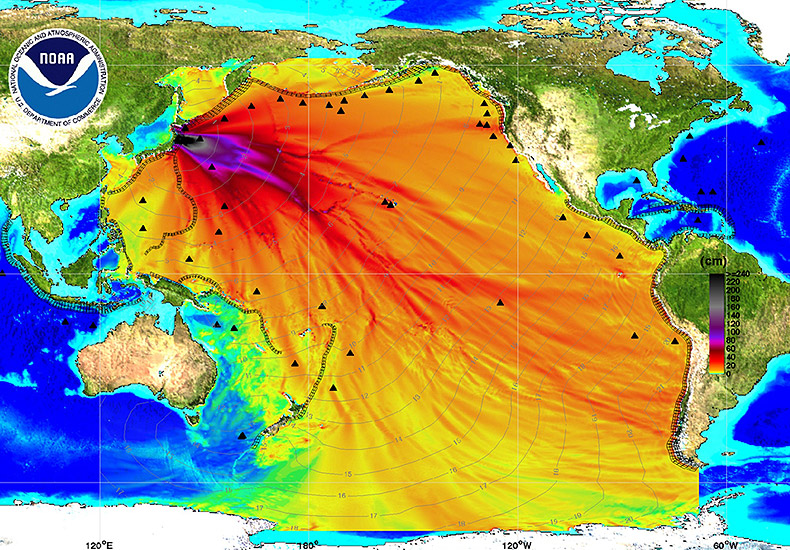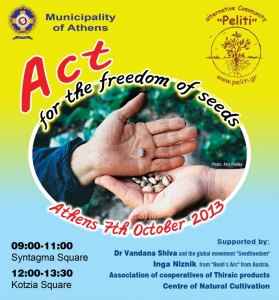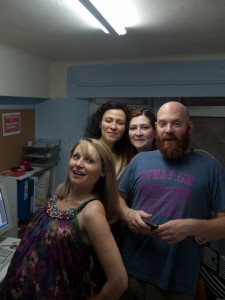A galaxy in my mug.
Category: Ecology
Review: The Science Delusion: Feeling the Spirit of Enquiry + Quotes ~ Αποφθέγματα ΧΙΧ
 The Science Delusion: Feeling the Spirit of Enquiry by Rupert Sheldrake
The Science Delusion: Feeling the Spirit of Enquiry by Rupert Sheldrake
My rating: 5 of 5 stars
I have the rational intelligence to be a scientist, but it’s not in my personality to fill in cracks in established mental models. I seek anomalies that open cracks.
~Ran Prieur
Quickly becoming one of my favourite quotes.
Jimmy Wales’ statement is as revolting as the discussion under it. I would suggest that you read it, but only if you have the stomach for tens of “skeptics” parrotting the mainstream opinions about woo, parapsychology etc, claiming the truth and the high ground of knowledge as they usually do. Even the article itself is taking clear sides without shame.
Do these people know anything about the subject? Does Jimmy Wales know anything about the subject, he who with one broad swath pigeonholes so many people as lunatic charlatanes? I don’t know whether this technique in particular has had successes, explicable or inexplicable, in doing what it says it does, I haven’t looked into it to be honest, but I’ve seen the same discussion surrounding “pseudoscience” too many times to count.
Why this hate? Why this elitism? Why this aversion to exploration of the fringes? When did science become all about defending what’s already known? I thought the opposite was the main idea. Is materialist science, peer-reviewd journals, wikipedia, Richard Dawkins and the rest, parts of a bulletproof world theory anyway?
No, they’re not. Far from it. And if you want to know why, you should absolutely read The Science Delusion (title insisted upon by publisher) by Rupert Sheldrake. His main idea is that science and the scientific method are generally good at giving answers about our world, but, just like organised religion 500 years ago did, it has become too inflexible, too bulky, too dogmatic, too rid of assumptions, too sure of itself and too dismissive to be of any real use today. Meanwhile, it’s hindering research that could further our understanding of the world in unimaginable ways.
What’s interesting is that Sheldrake in this book provides us with -what’s normally considered as- hard evidence for a world that cannot be explained materialistically. That includes results of real peer-reviewed experiments that point to the reality of things like brainless memories, statistically significant telepathy and many more chin-stroke-worthy phenomena that truly test mainstream science’s beliefs of what should or shouldn’t be possible.
After reading the book, I checked Rupert Sheldrake’s Wikipedia entry just to see reactions to his work from the scientific communituy. Not surprisingly, the discussion was not much more sophisticated than what I witnessed in the link at the top of this review: accusations of pseudoscience, charlatanism etc pervaded the articles, indications that the skeptics hadn’t really comprehended the criticism aimed at their methodology and worldview, didn’t follow up on the bibliography, plainly assuming that there must have been something wrong with it (confirmation bias), or that they simply didn’t even read the book. Richard Dawkins has said, after all, that he doesn’t want to discuss evidence when it comes to inexplicable phenomena, raising questions about whether he’s really interested in the truth or not – in my personal experience, most skeptics do not have furthering their understanding of our world at the top of their priorities.
In any case, I find the accusations against Sheldrake, and this book in particular, hollow: The Science Delusion has close to 40 pages of notes and bibliography of actual experiments to back it up and Sheldrake’s style and prose themselves are lucid as well as restrained. Even in the parts in which he discusses the inability of science to interpret the phenomena, where he proposes his own theory of morphing resonance as a possible explanation -the parts I enjoyed the least because I cannot exactly grasp the concept of morphic resonance-, he does so without conviction, but rather with the spirit of the curious researcher. A true scientist in my book. The skeptics’ reaction to his work seems to disregard all of this completely; they treat him like they would any old fraud.
But I understand: scientists are also people. What would it have been normal for them to do in the face of rejection of their entire lives’ work plus a few hundred years of tradition? Accept their failure? Accept their dogmatism? Just as scientists are people, science is also a human activity, and as most of human activities do, it also suffers from the same problems human beings generally have, only in a larger, more chaotic scale.
Finally, one more reason I appreciated this book so much was that it was… tender. At the other side of the raging skeptics and this blind rejection there is investigation, there is respect, there is a belief in a state of things that resonated deeply with me. Maybe it’s because Sheldrake’s main field of research has been biology that he shows such love for plants, animals and life in general. For whatever reason, it warmed my heart and made me think that if I ever was a real scientist, Sheldrake would be my rold model: a fighter for truth against the faux fighters for truth, the romantic gardener who everybody calls a hippie but he alone sees what everybody else is too blind to see.
Third five-star review in a row after Μίλα μου για γλώσσα and
Small Gods (lol). Am I becoming softer or just more grateful?
The Ocean Is Broken
IT was the silence that made this voyage different from all of those before it.
Not the absence of sound, exactly.
The wind still whipped the sails and whistled in the rigging. The waves still sloshed against the fibreglass hull.
And there were plenty of other noises: muffled thuds and bumps and scrapes as the boat knocked against pieces of debris.
What was missing was the cries of the seabirds which, on all previous similar voyages, had surrounded the boat.
The birds were missing because the fish were missing.
[…]
North of the equator, up above New Guinea, the ocean-racers saw a big fishing boat working a reef in the distance.
“All day it was there, trawling back and forth. It was a big ship, like a mother-ship,” he said.
And all night it worked too, under bright floodlights. And in the morning Macfadyen was awoken by his crewman calling out, urgently, that the ship had launched a speedboat.
“Obviously I was worried. We were unarmed and pirates are a real worry in those waters. I thought, if these guys had weapons then we were in deep trouble.”
But they weren’t pirates, not in the conventional sense, at least. The speedboat came alongside and the Melanesian men aboard offered gifts of fruit and jars of jam and preserves.
“And they gave us five big sugar-bags full of fish,” he said.
“They were good, big fish, of all kinds. Some were fresh, but others had obviously been in the sun for a while.
“We told them there was no way we could possibly use all those fish. There were just two of us, with no real place to store or keep them. They just shrugged and told us to tip them overboard. That’s what they would have done with them anyway, they said.
“They told us that his was just a small fraction of one day’s by-catch. That they were only interested in tuna and to them, everything else was rubbish. It was all killed, all dumped. They just trawled that reef day and night and stripped it of every living thing.”
Macfadyen felt sick to his heart. That was one fishing boat among countless more working unseen beyond the horizon, many of them doing exactly the same thing.
No wonder the sea was dead. No wonder his baited lines caught nothing. There was nothing to catch.
If that sounds depressing, it only got worse.
…
One of the saddest articles I’ve read in a while…
Reminded me of this.
Review: Dolphin Music
 Dolphin Music by Antoinette Moses
Dolphin Music by Antoinette Moses
My rating: 4 of 5 stars
“The year is 2051. CONTROL, the government of Europe, keeps everyone happy in a virtual reality. This is a world where it is too hot to go out, and where wonderful music made by dolphins gives everyone pleasure. It’s a world which is changed forever when music critic Saul Grant discovers what makes dolphins sing and sets out to free them.”
Wouldn’t this back-cover tidbit catch your attention immediately if you stumbled upon it while browsing through used books? I know it caught mine. It was in the open-air book market in front of Sofia City Library, where I’m doing my EVS. If anything with either 1) dolphins, 2) the Web or 3) dystopian sci-fi is easy enough to pique my interest on its own, imagine my face seeing them combined.
The book itself is only 96 pages long and, regardless of the simple language because the book was written specifically for EFL students of around FCE level, I found it to be quite enjoyable and engaging; not pretentious yet interesting; simplified in language but not messages, and quite relevant ones, too.
To tell you the truth, I find telling a story in the easiest words possible quite charming. Something in the style just makes my heart softer, like ice cream with warm cookies. It’s like watching children’s cartoons and being able to appreciate the simple beauty of it just because you’re an adult. If a universal truth were spoken, I’m sure it would be closer to such language than to the kind reserved for high philosophy. They say that life is complicated; that’s true, but it’s also fantastically simple.
For what it is, Dolphin Music is really good. I started off by giving this book three stars but writing about it made me happier. I can’t see what should stop me from giving it four.
There’s No Tomorrow
Amazing film on energy, growth and food (έχει και ελληνικούς υπότιτλους). It’s Ecology 101, really. Watch it; if you can come up with a good way to get out of this mess -apart from mass conversion to degrowth– tell me. In the meantime, also tell the rest of the world; if no inhuman corporate interest intervenes (including in the form of public disapproval/indifference), you just might become the most important person of the 21st century, if not the whole of human history, at least as we can envision it today.
Alas, many have tried, and today, as far as I can see, there truly seems to be No Tomorrow, at least for the world as we have come to know it. Young people alive today will have to be ready to take the responsibility of being the founders of the post-collapse society.
Are you up for it?
Thanks to Séverine from Heterotopies for posting this on Facebook some months back; only today did I decide to clean it from my tab dump by actually watching it. Internet distraction… ><
Something Is Killing Life All Over The Pacific Ocean – Could It Be Fukushima? (Activist Post)
I’ll just drop this here…
Note I don’t know how old this map exactly is, but somehow I won’t feel much better if it’s newer rather than older.
The Future of Seeds and Agriculture
I had the chance to hear Dr. Vandana Shiva and other speakers today at an event about biodiversity which was organised as part of the international fortnight dedicated to seed freedom, conceived also by Vandana Shiva.
Things are looking serious. Apparently the EU is preparing legislation that will prohibit “plant propagating material” (what a sterilised, robotic way to name seeds) being exchanged, sold or distributed, unless it’s in the official lists of permitted genetic material for cultivation. Who’s going to have the privilege of featuring on those lists? Who else but our old friend Monsanto, who will finally turn their notorious GMO seeds into a monopoly. And it’s not as if more people will be fed or that food’s going to be cheaper: imagine having to pay for every (sterile) seed which will sprout a plant that is tailored to need Monsanto fertilizer and pesticide to thrive (that’s extra expenses) and, in the end, produces shit, poisoned food. That’s apparently the standard we should be aiming for as a society.
The EU is claiming that his measure will help ensure this quality through homogeneity – something like having your vegetables made by IKEA. It doesn’t take a genius however to figure out what all this will do to babies such as these:
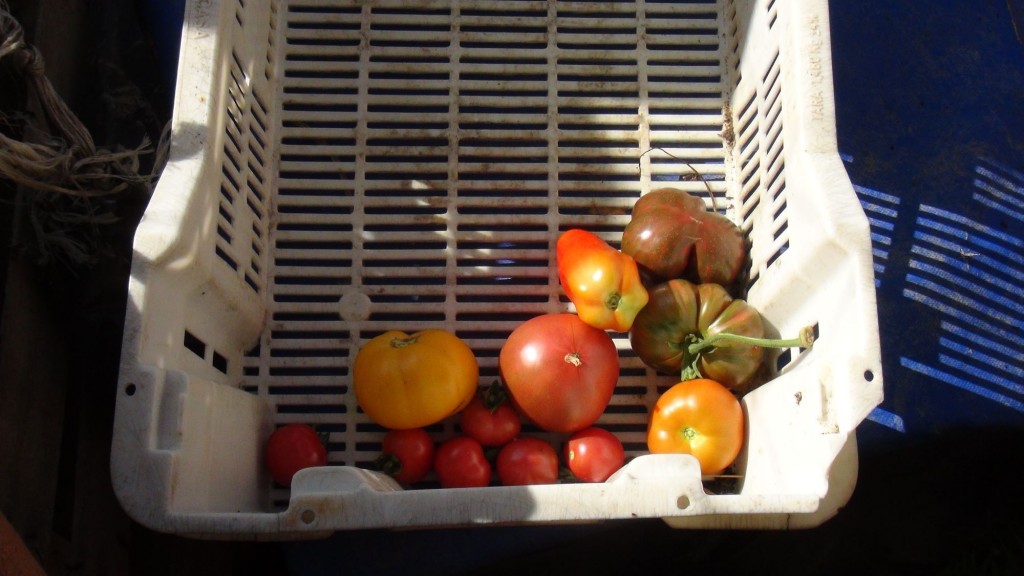
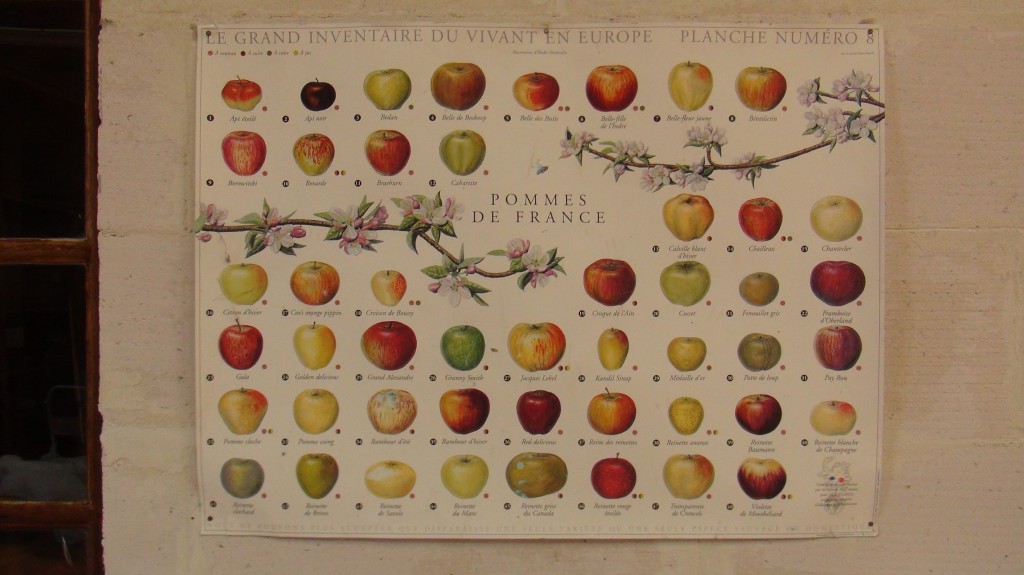
In what way could the above benefit the civil society in any way, any way at all?
If we ask cui bono, the anwer to this, to all this, should be depressingly clear. Is this the future we want? A techno-nightmare in which people have to fight for everything they thought that being born in the 20th century had gifted them with, including a decent job and a society that respects inidividual rights?
The only solution I can think of, since most city dwellers wouldn’t be remotely interested in protecting their health, much less their country’s and our only home’s biodiversity, from these monstrous corporations, will be to actively protect the seeds planting them in one’s (urban) garden and eco-communities, at the same time forming protection networks. Peliti (for Greeks) and this campaign for seed sovereignty for a start and some ideas.
More alternatives? A concept I’d heard about and which was talked about today but I regrettably haven’t delved into is Masanobu Fukuoka’s Natural Gardening. This is the main idea: the farmer/cultivator puts lots of different kinds of seeds in little balls of dirt and sows them. The right kinds of seeds only sprout at their own ideal locations, resulting in a balanced garden or farm which has a little bit of everything. This might come to a surprise to many monoculture enthusiasts but this variety actually strengthens the balance of the plant ecology -in the same way a multicultural society creates superior dynamics to a clean one- and yields more food. The cultivator never intervenes in any way, shape or form: no chemicals, no pesticides, nothing. Not even organic means. Really: it’s the agriculture of doing nothing. Sustainability, permaculture, balance. No wonder a Japanese came up with such a practice.
Certificates and Heterotopias
This post has been was a work-in-progress ever since I got back from France in August. A major contributing factor for this delay has been a certain game I’ve put close to 4 full days into in the past month. Another has been my enduring inability to prioritise my activities, declutter my life and put my thoughts and feelings in order. I have found that creation is what I need, a positive step in the right direction. Writing more and returning to Cubilone’s Dimension will prove to be, I hope, a step towards solving these problems. Actually, solving them sounds a bit alien; I can’t really imagine myself living without these aspects of my personality. Is this my personal story sabotaging my development? Have I made a self-fulfilling prophecy out of trying to form or carve my identity? Hmmm…
As the months pass by and my post-study period grows longer, the dilemmas grow larger and scarier and often I feel as if I’m stuck in the middle of two worlds.
This summer, after our fantastic experience in Finland in June, two important things happened:
The first one was that, after many years of thinking it over, I finally did my CELTA course, which means that I’m now an internationally certified English teacher, or at the very least I’m elligible to teach pretty much anywhere in the world. For four weeks, eight hours each day, I learned how to teach the English grammar, vocabulary, phonology, various methods, what one should and shouldn’t do… At least the basics, for it’s of course a lifelong process, as is everything. The toughest part was that my 9 colleagues and I each had to teach eight lessons, totalling six hours, which we had to plan thoroughly beforehand as well as execute the best we could in the classroom, teaching real students (who by the way did not have to pay money to learn English because it was trainees teaching them) and later receiving feedback on those lessons from our colleagues and tutor.
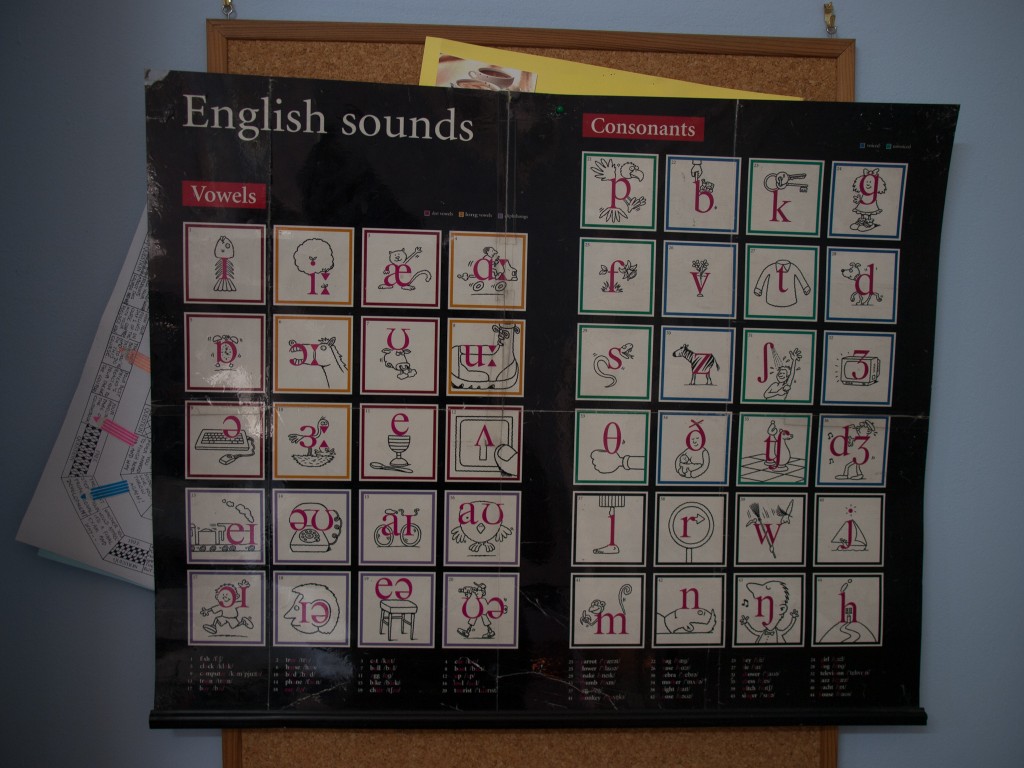
Oh, the things I heard about my teaching! I had never taught before, at least not in this “official” sense, and it showed. I was extremely nervous, kept staring at the whiteboard while writing my nonsensical teaching aids, had great trouble explaining in simple words things like the form and function of the present perfect or the lead-in for exercises… If those students hadn’t been as accustomed to other confusing teachers before me, they would have surely performed completely different tasks half the time, which they sometimes did. The tutors were brutal with their criticism at times, but it was all beneficial in the end: it helped me realise that one of my main and enduring weaknesses has been explaining things in simple and unconvoluted words even though, ever since (I remember having the same problem as well many times before), every time I realise I’m explaining something awkwardly or maybe unintelligibly, the self-consciousness still makes it almost impossible to explain in an empathic and efficient way. This will come with experience I suppose but it was one of the most important lessons. On top of that, we had to complete one assignment each weekend, which left us next to no free time at all.
My tutors, Alexander Makarios, George Vassilakis and Marissa Constantinides were all exceptional in their own ways and did an excellent job in making me kick off my teaching career. Thank you guys! My colleagues -Vaggelis, Daniel, Ioni, Chrysanthi, Pedro, Panayota, Margie, Theo and Kelly- I grew sick of and am glad I didn’t have to spend any more time together with them. Just look how much we hate eachother’s guts in the pictures and video:
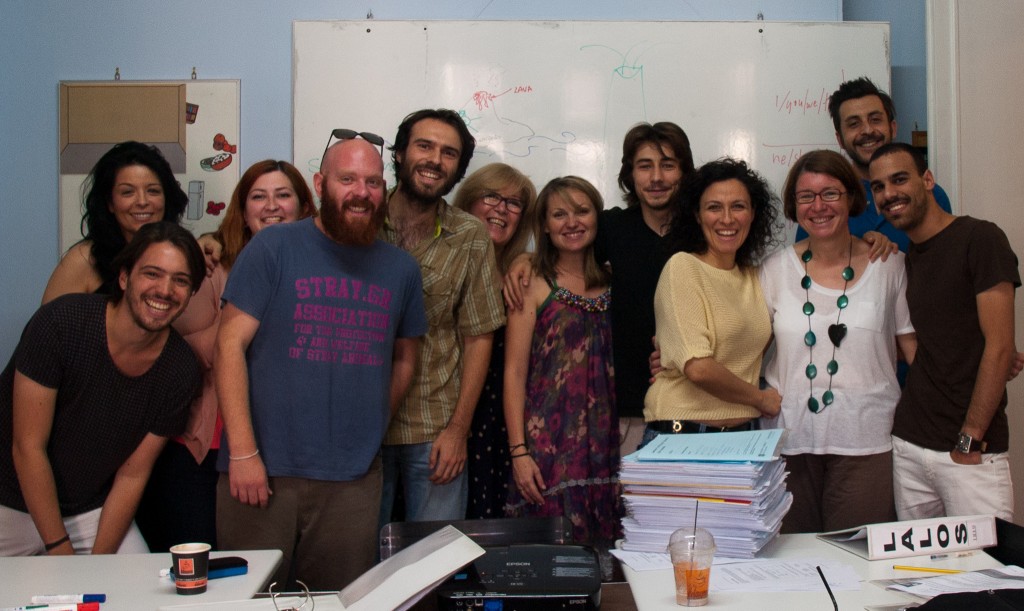
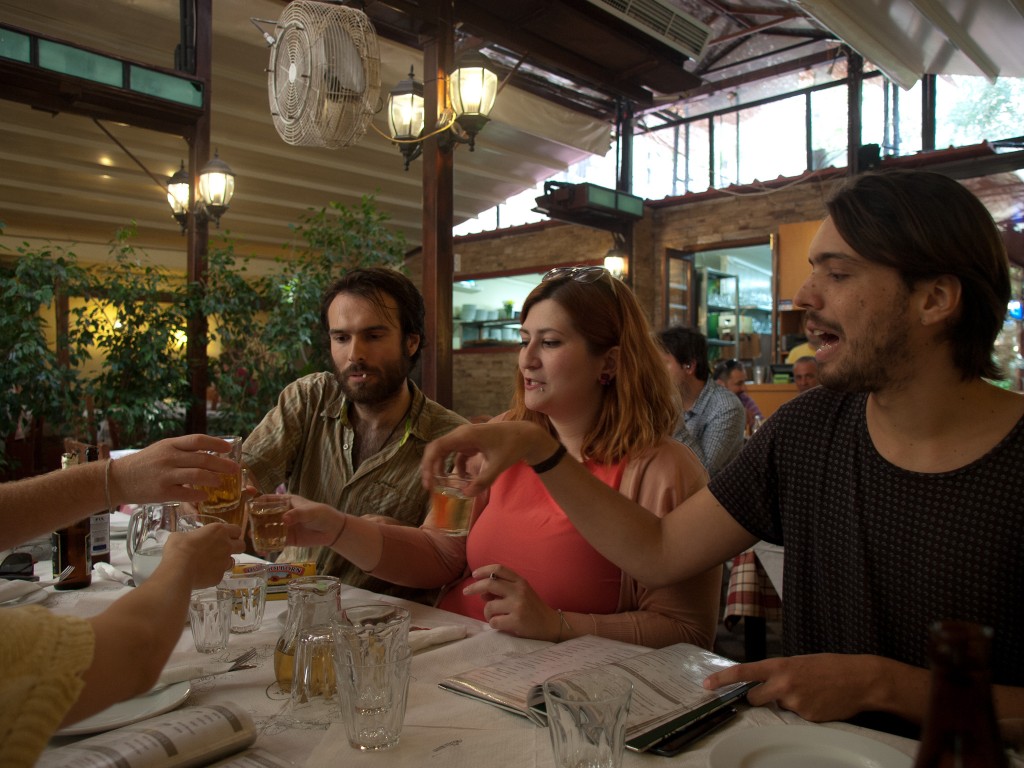
After I was done with the CELTA I was pumped to leave Greece and go teach English somewhere in the world with the coming of the new school year, preferably at a place in which I would be able to communicate with the locals in their native language. That was something that would exclude Japan -it’s a whole different chapter and dream- but would include Spain, Latin America and Germany/Austria, my B2 certificates for both languages fresh from early last summer and making me eager to get some real life experience with them as soon as possible!
But then the second thing happened.
Even before I had hugged my colleagues and tutors goodbye, desperate for some rest and some time to either think or not have to think at all, at the very least until the time I’d have to leave Greece to do my English-teaching duty, right then came the call for the Trip to Heterotopia. “For 21 days in Southern France we’re going to be a caravan visiting eco-communities, festivals, solidarity projects and groups. We will be wildcamping, so bring your tents, sleeping bags and headlamps!” At first I was very sceptical. I was tired and longed for doing nothing, as I mentioned above. It was only little more than a month since I’d been abroad last and, frankly, I felt as if I’d had enough flying around with backpacks, having to wait in airoports and making new temporary friendships, for the year at least. I reluctantly applied anyway; the idea seemed just too good to skip altogether.
To my surprise, I was actually selected, albeit at the last moment. When I talked with Chrysostomos, the head of European Village (the sending organisation) about the specifics, I warned him that my financial situation was at its usual low. He told me that all the costs together would amount to 120€. A hundred and twenty. I was shocked.
-“What’s the catch?” I thought I was being clever. “What’s the cost of participation?”
-“None. We’ve decided not to have one. Our current budget allows us to handle all the costs; it will be better and more convenient than passing them down to the travellers.”
That was it. 120€ would be cheaper even than staying in Athens for the same amount of time. Dafni wasn’t too happy with the suddenness of it all (we had made various plans for August already) but she was a sweet little understanding raccoon in the end and anyway had her own plans.
So there was us: 10 Greeks, and another 15 French people in it for the three weeks of the exchange. Together we visited five different locations and stayed some days in each, did wildcamping in every place, took part and volunteered for local festivals, picked organic vegetables from the community gardens and patches, learned how to build and use dry toilets (it’s not as bad as it sounds actually), participated in workshops on eco-building and local seed trading, there even was a Greek night dedicated to the Crisis. Our flag”ship” motor vehicle was the Vagabond Sage, a retrofit ’70s coach complete with dry toilet, wind generator and solar panels. We did not use all of its features but it was the symbol of our Trip in the French Heterotopias, the utopias that really exist.
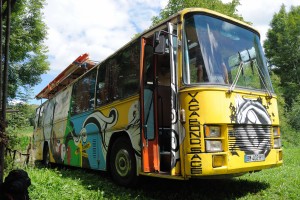
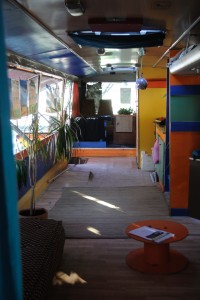
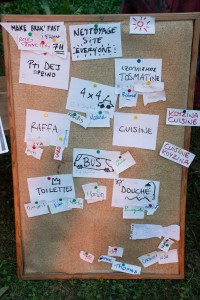
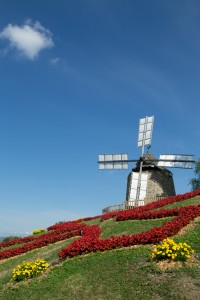
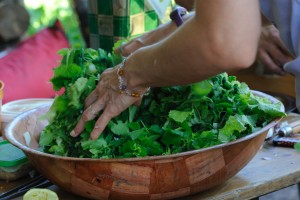
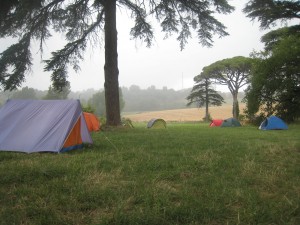
All pictures by Marina, Myrto and Caro (I apologise for the terrible formatting of the pictures above. The gallery couldn’t come out right. I think it’s time for a new theme anyway...)
The experience from those three weeks is hard for me to put into words, not unlike much of the rest of my life. The trip was very practical: we had to pack stuff, unpack stuff, cook most meals from scratch (and cater for close to 30 people at times), deal with stuff changing places and having to ask about their whereabouts (looking at you, coffee and coffeejugs!), set up tents, build dry toilets and showers, empty said toilets, and many more things I’m generally not good at, the cerebral rather than practical, abstract rather than present, clumsy and unwieldy person that I generally am. I was much happier sitting somewhere writing my morning pages (more on those in the near future) or enjoying the sun than really helping to prepare dinner, for example, but not being really useful filled me with guilt. I felt that this separated me from the rest of the group and made it harder for me to contribute to our common goals and tasks. Sure, learning about eco-friendly and transitional practices was heaps of fun and super-interesting; connecting with the French and the Greeks was exciting and fun and there was all this adventure and thrill of moving from place to place and exploring rural Southern France, but I always had this nagging feeling that alone I could not do this, that somehow I wasn’t the right person for it. Once again, as I have too many times before to count, I felt like the black sheep. Or rather a sophisticated, colourful goat among a herd of sheep that has none of the definite deviant prestige that black sheep usually have but instead has a certain, perhaps misplaced, idea of superiority. When that idea is threatened and attacked by no-one in particular but, at the same time, everyone at once, I can be very reclusive and pensive. I was the city kid in a group of people who lived and breathed nature, it seemed. Thankfully, there were other people in the Greek group with whom I could share the feeling.
(Video I made with Phoenix for Daphne. Phoenix is the little fox she got for me while we were in Finland. The video is in Standard Definition, unfortunately.)
At the same time, I know that what we did in that trip is important and is the future. Anything that could make me and others more self-sufficient, make us able to take our own situations into our hands, free to lead our lives as we please, is important in this age of destroyed opportunities, slave wages and fear-mongering. We had some discussions on self-reliance around our almost daily nightly fire, watched a couple of movies that inspired me to take action one way or another (more specifically Να Μην Ζήσουμε Σαν Δούλοι), but most of all it was the people who took part, with their lifestyle and their choices, that made me think and feel.
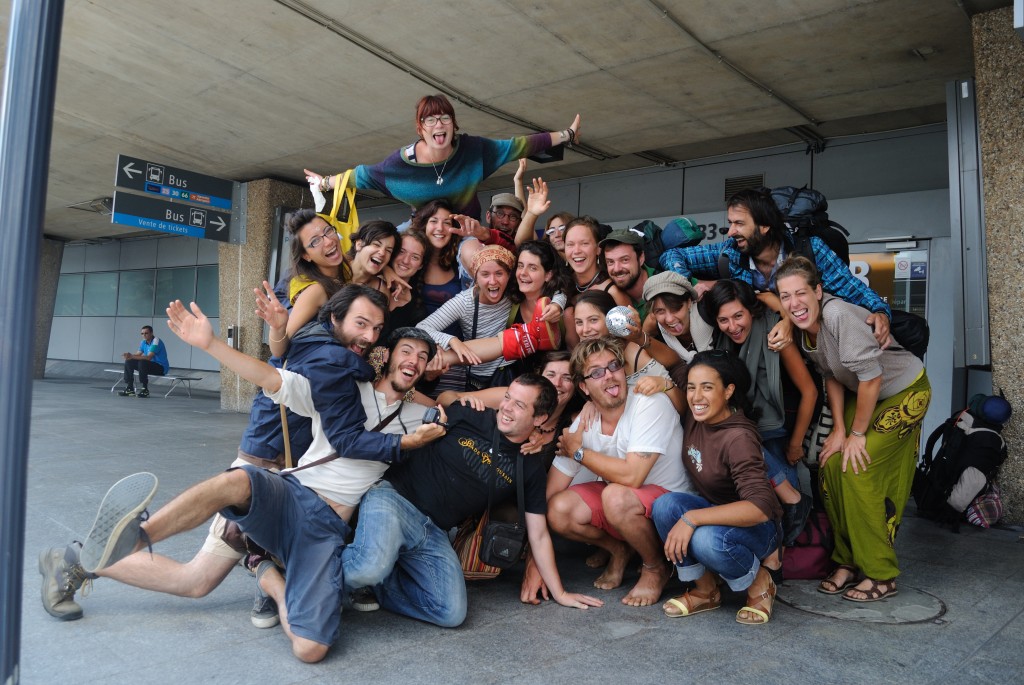
To cut a long story short, by the time we had got back to Greece I didn’t really want to leave immediately to find a job abroad. I had this feeling that staying here in Athens might not be so futile if I can find a way to use my time actively and creatively. Additionally, I felt and still feel that there’s lots of shit I have to figure out, reconcile, get over or leave behind before I can start something new. Putting some order to my digital belongings, selling or giving away stuff, giving time and energy to learn from everything that has happened in my life recently is really what I need but keep postponing due to distractions. Part of me tells me it’s all still being lazy and that purposefully skipping the opportunity to work abroad when I had it is regrettable, not to say of suspicious motivation on my part.
What appeared instead, however, is an excellent testament to the power of serendipity and letting the flow guide your path. Even if I missed the teaching abroad deadlines, there’s a very good possibility I will still be leaving the country after all to do my EVS (European Voluntary Service). Since there’s nothing urgent to do, might as well take advantage of my extended gap years while at the same time being independent for a change.
The real big questions in my head right now have to do with what path I should follow: one focused on living in the moment, taking advantage of opportunities as they come (the EVS and YIA side), discovering the Heterotopias that exist right under our noses and applying myself to that, or the other, in which I’ll make myself more qualified for actual work (which could be in the form of a MA in Prolonged Indecisiveness) or, yes, getting money and building the foundation for future survival? Certificates or Heterotopias? Playing it by ear as I’ve done a lot lately, or gearing up for the mystical tomorrow-never-comes “adult life”, which some would argue can’t include working as an English teacher abroad? /s
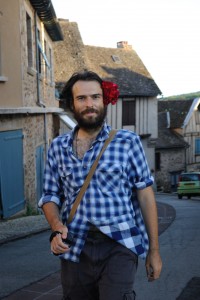
From where I’m standing at the moment, the hopefully upcoming EVS looks like it might be able to combine the best of both worlds for me: independence, creativity, new experiences as well as involving myself with things that might benefit my future options of getting by. Still, it’s too fresh to announce anything concrete. If I’m finally doing it (my application’s in the notorious EVS red tape maze right now), which I should know by December, I’ll be leaving for Bulgaria in January 2014 and will be living there for close to a year working for Sofia City Library. That will involve updating their volunteer-run blog, creating promotional media for the library and, from what I can tell, having relatively lots of freedom to pursue my own projects.
What will happen next and whether or not I’ll manage to take advantage of the months ahead will depend entirely on my own ability to balance, prioritise and purge, while at the same time not leaving the flow. OK, maybe not entirely: the current monumental instability of the world will provide us all with some interesting distractions, surprises, dangers and wild card paradigm shifts. One thing’s for sure: we already have absolutely no excuses to feel bored.
Midway: a Message from the Gyre
MIDWAY a Message from the Gyre : a short film by Chris Jordan from Midway on Vimeo.
I dare you to watch this without having it pluck at your heart. Heeey, it’s okay to shed a tear or two, no-one will think worse of you.
Review: Apocalypsopolis by Ran Prieur
My rating: 5 of 5 stars
I’ve asked the question before, but can we really consider this a book? If the writer says it’s one, it is one; we’re taking it from there.
I’ve been reading the blog of this crazy person Ran Prieur for the past few weeks and every day I love him more and more. His writing, his style, his way of life is another inspiration for me. He’s quickly finding his way to this exclusive mental resort where all my top favourite people (Douglas Adams, Dan Carlin, Maria Efthimiou, Kyle Cease, Jean-Jacques Rousseau, Raymond Smullyan, Steven Wilson, Alan Watts, Edgar Wright and the list goes on) are having the longest cocktail party/cozy discussion in altered states of their (after)lives.
Apocalypsopolis is a post-apocalyptic novela – or should I say while-apocalyptic? It shows what would happen during the apocalypse. Ran Prieur’s version of it isn’t any old end of the world, however. Through his work he clearly shows all of the things that mattered to him 9 years ago and still, to a certain extent, do today: man’s alienation from nature, his interest in “conspiracy theories” and metaphysics, the simplicity, complexity and -at the same time- trivialty of existence, the future of humanity.
You like post-apocalyptic fantasy? Read it. You like (political) philosophy? Read it. You like hippie fiction? Read it. Intrigued by the deconstruction of metaphysics? Read it. Survivalism strike your fancy? You know the drill.

